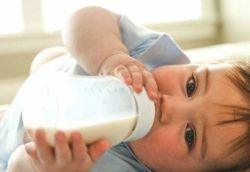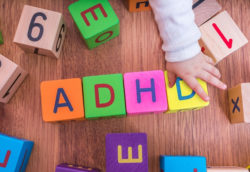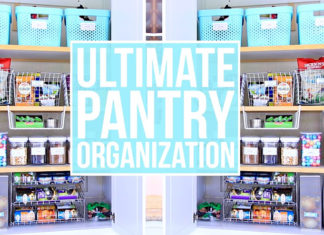Your baby is two months old now. At this stage, you will get relief from the pregnancy wounds. Two months is the biggest and successful milestone.
After being on this new journey for 2 months, you will enter into the successful stage of parenting. You need to learn more about the development and milestones of your 9 week baby including talking, crawling, memory, growth, and more. With the completion of 2 months your baby is ready to learn a lot and recognize many more things.
Here’s what you can expect from your 9 week old baby.
9 Week old baby’s development and milestones:
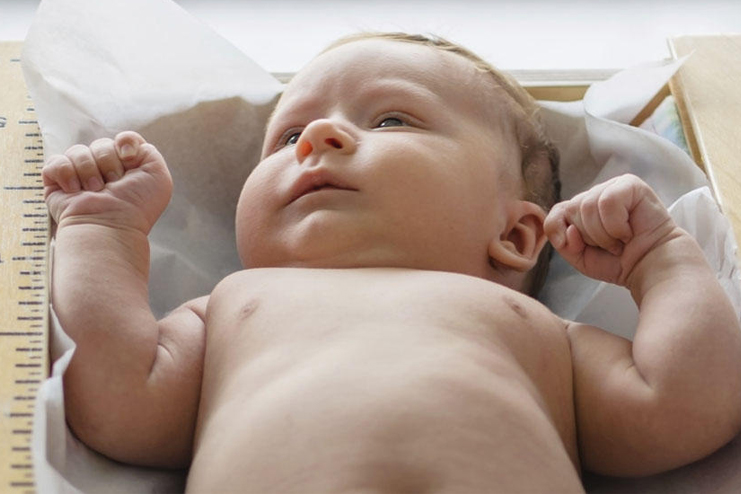
Development pace varies from baby to baby and each baby has their own developmental pace. It is quite common that some babies lag in their development. Delay in reaching the milestones is normal if it is not accompanied by any other behavioral changes.
Here are a few physical cognitive developments in your 9 week old baby:
1. 9 week old baby’s weight:
The biggest goal of every parent is to check whether their baby is growing normally or not. At every checkup, doctors will look your baby’s weight, and height to ensure that they are growing as expected.
• A 9 week old baby girl is expected to have 8.4-15.2 lb with the height of 20.6-24.3 inches
• A 9 week old baby boy is expected to have a weight of 9.0-16.3 lb with the height of 21.2-24.8 inches
Proper feeding plays an important role in the weight gain of the baby. Studies suggest that breastfed babies weigh less than the formula fed babies. Healthy and proper weight gain gives your baby chubby thighs and arms.
2. 9 Week old baby’s head and shoulders:
Your baby might raise their head in response to the stimulation or raise the shoulders during the tummy time. At the birth, your baby have very little control over the motor skills because of their week neck muscles. Babies start lifting their head by the end of their one month.
Babies could be able to gain complete control over the neck muscles in between 4 to 6 months. Here is how the babies learn to gain control over their heads.
Newbron : A newborn will completely rely on you for the support of their neck and head.
At around 6-8 weeks: by the end of 1 month, babies can briefly lift their heads and turn it from side to side. A baby with strong coordination skills, can raise their head when they lie on their back.
Care should be taken until the neck muscles of your baby are well developed. Premature babies are likely to reach this milestone a bit late when compared to the full term babies.
3. 9 Week old baby feeding:
A 9 week old baby requires to be fed 7-9 times a day. Frequency of feeding ranges from 2-3 hours in breastfed babies and 3-4 hours in formula fed babies. The feeding frequency may vary from baby to baby. Look for the hunger cues in your baby before they start crying, which is the late sign of hunger. It is very difficult to settle down the baby at this stage.
The typical hunger cues in the babies include:
- Licking lips
- Sticking the tongue out
- Moving the head side to side in the search of breast or bottle
- Putting the hand to the mouth repeatedly
- Fussiness
- Sucking the thumb and everything that they find around.
For the premature babies and the babies who have certain medical conditions. The feeding schedules prescribed by the pediatrician are the best. At the age of 2 months babies usually require 4 to 5 ounces per every feeding.
Note: Make sure that your baby is not overfed which may lead to several problems like stomach pains, gas, spit up or vomit and these babies are at the risk of obesity in the later life.
4. Games that 9 week old baby likes:
One of the most interesting activity that your 2 months old baby likes is talking with them more frequently. Some other activities that babies like at this stage are pulling and kicking the mobiles and toys.
5. 9 week old baby social smiling:
It is more common for the newborns to smile in their sleep. A smile in the early weeks of their life is a sign that they are passing the gas. Babies at the age of 9 weeks starts to develop social smile which is intended to show their love towards you.
6. 9 week old baby’s tummy time:
Tummy time is the major step towards the baby’s development. Here you need to know how much tummy time the baby needs at this age and how to make it a fun. Tummy time is the basic pillar for many other milestones.
It is the time that babies spend on their stomach while they are awake and under the supervision of caregivers. This position encourages the baby to raise their head. This helps them to strengthen their muscles of the head, neck, and shoulders which in turn promotes their motor skills.
Babies enjoy their tummy time when they get older and reach the age of 2-3 months. Aim for 20-30 minutes of tummy time at this stage. Allow the baby to keep practicing the tummy time till they start to rollover.
Here are a few tips for your baby’s safer tummy time:
- Set up a soft and safe place for your baby to lay down
- If your baby is not interested to have tummy time on their own, then engage your baby by providing proper assistance and support
- If your baby does not like the tummy time, don’t stress and come back after sometime
7. 9 Week old baby’s sleep routines:
A pleasant and distortion less sleep plays a prominent role in the development of the baby. It is the well known fact that babies do not sleep during the first week which gradually improves as they grow.
When the babies reach the age of 2 months, they sleep for 13-14 hours in the nights and 4-8 hours during the day time. Even though the baby wakes up in the middle of the night, they get into the sleep quickly as soon as their tummy is full. Some babies get into the sleep after playing for sometime on their own and some other require their caregivers to soothe and comfort them.
Ensure that all the external factors are at the convenient levels to offer comfortable sleep for the baby. It is always required to keep an eye on the room temperature in your baby’s room. Dress your baby as per the weather and the room temperature. 2 months old baby do not like to be swaddled, ensure to wrap them loosely offering more space for them to roll over.
8. Teething in 9 months old baby:
Teething is the biggest memorable event in your baby. But, it may offer uncomfortable situation for your baby. If you know more about the teething in your baby, you can help your baby better. In most of the babies teething begins at the age 0f 4-7 months. In some other babies teething starts at the age of 2 months.
You need to know the signs of teething in your baby and the symptoms may vary from baby to baby. Some of them include:
- Swollen and tender gums
- Fussiness and crying
- A slight raise in the temperature
- Desire to chew on the hard things
- Changes in the sleep patterns
Teething does not make the baby sick though it is uncomfortable. You need to consult your doctor if your baby has any of the following:
- Diarrhea
- Vomiting
- Rashes
- High fever
- Cough and congestion
You can use the following simple tips to comfort your teething baby:
- Offer the rejuvenating things like pacifier, spoon, cold spoon, wash cloth, or teething ring to soothe the baby.
- Ensure that the baby is putting the safe and clean things in the mouth.
9. 9 Week old baby’s behavior:
Baby’s start gargle resembling laughter sometimes when they are too excited. Babies may start imitating with you and often give adorable smiles. They show more interest during their bathing time.
With the continued tummy time, babies are able to raise their heads and look straight. They start to recognize the use of their arms which support them during tummy time. But, they can’t use their arms for longer times. Babies start recognizing your face and feel comforted by your touch.
10. 9 Week old baby crying:
At this age babies tend to cry a lot. Even a small disturbance in their sleep may make them to cry more. Other underlying reasons like stomach pain, exhaustion, and irritation may make them to cry more. Certain ill conditions also may make the baby to start long lasting episodes of crying. It is easy to soothe and calm down the crying baby at this stage with the emotional attachment.
Keep your baby away from the noises during the sleep and make sure that they are not overfed which may result in the gas. Carry your baby in the sling when they are awake and carry on with your activities to make them secured.
If your baby cries for longer time at the same time every day, then your baby has colic and it does not mean that your baby has health problem. Check with your doctor for the solution.
11. 9 week old baby Hearing:
It is more important to get your baby’s hearing test done within the first 3 weeks of their life. If there is any problem, doctors start the treatment as soon as the baby is 6 months old.
Check for the proper hearing in your baby even if they pass the hearing test. Here are the few hearing milestones that you should look for in your 2 months old baby:
- Newborns jump to sudden loud noises or the moderate noises which are made closer to their eye.
- By the age of 3 months, babies can identify the voice of their parents.
Babies are at the risk of hearing loss, if they had any of the following:
- Was born before the term
- Stayed in the neonatal intensive care unit
- Has complications at the time of birth
- Frequent ear infections
- Was given any kind of medications that lead to hearing loss
12. Baby’s vision:
Your baby’s vision transitions into the bright from the blurry. Baby recognizes your face at this stage but with in the rage of 8-12 inches that they has during their birth. You might recognize increase in the attention span gradually. During their first month, they might have gazed at you only for few seconds, now your baby will be able to gaze at you for more than 10 seconds or as long as you talk to them.
Begins to move their eyes independent of the head. Hang a safe mobile over the crib and help baby to enhance their vision and self soothe themselves.
13. Vaccinations:
If the previous vaccines are successfully given, there are no vaccines should be specifically administered at this week.
Comforting Measures for the 9 week old baby:
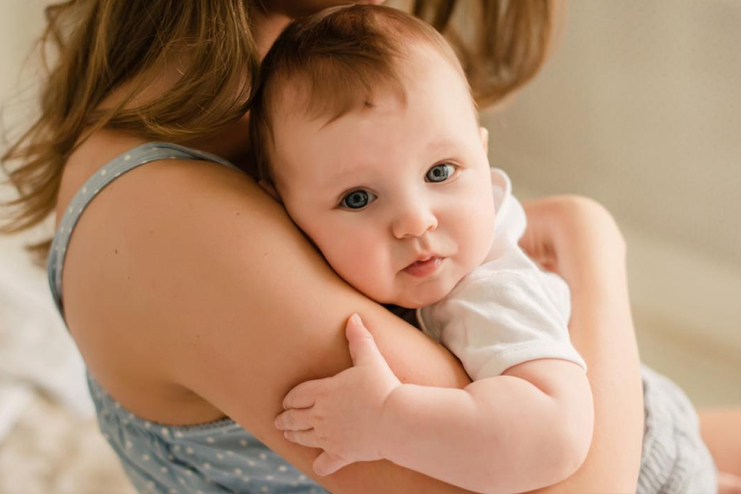
Here are a few comforting measures that the babies need at every stage of the development for the proper growth.
1. Basic Comforting Needs:
These are the main basic needs that every baby requires.
- Nursing
- Burping after every feeding
- Frequent diaper changing
- Dressing baby properly as per the room temperature
2. Comforting Touch:
Here are a few ways to offer comforting touch for the baby:
- Hold the baby properly
- Carry the baby in a soft carrier
- Give your baby a gentle back rub
- Offer some tummy time for the baby and gently pat the back
- Give daily massage with baby oil.
3. Reduce the stimulation:
Babies may become overstimulated when they are exposed to the activities, noises, and sensations beyond that they can cope. For example, babies may get overstimulated where they may get cuddled by many grown ups. Here are a few tips to reduce over stimulation in babies:
Proper swaddling can help the baby to calm down and promote the sleep.
Dim the lights in your baby’s room and reduce all the noise sources.
4. Comforting Sounds:
Comforting sounds are very important to soothe the baby. Some of the soothing sounds include:
- Play some variety of sounds with various voices and observe the type of voice which your baby prefers to listen or likes most.
- Sing to your baby
- Some babies may prefer to listen white noises which produces the noises of various frequencies with the same intensity.
5. Rhythmic Movements:
Rhythmic movements will help to promote your baby’s participation and attention to the environment around them. Babies are known to have strong sense of rhythm right from the birth.
Here are a few rhythmic movements to enhance the senses of your baby:
- Nurse your baby in motion which might help them to improve grip over the sucking even when they are in motion.
- Hold and bounce your baby gently
- Walk somewhere inside or outside of the house by holding your baby in the sling.
- Take your baby in the stroller for walk and offer some peaceful green time.
In conclusion, it is not mandatory for the babies to achieve specific milestones in a particular week.
9 Week Old Baby Care Tips:
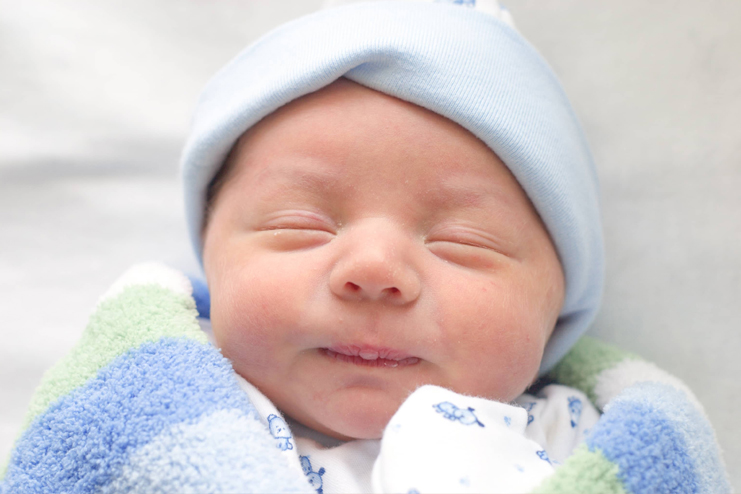
As the baby grows, they require more safety measures and the care tips for their comfort. Here are a few safety measures that you should follow for your newborn baby:
1. Baby clothing: Dress your baby as per the weather and the room temperature. Don not overdress your baby in the winter which may make them more sweaty. Ensure that their temperature should not go high in the summer.
2. Track you diet: Some of the foods that you eat may cause gas in babies. Keep track on the foods that you eat and avoid junk foods while breastfeeding.
3. Getting out with the baby: It is good to take your baby out for evening walk in the stroller in the fresh and green air. This is more beneficial for the development and growth of your baby.
4. Keep your house clean: Keep your home clean away from the germs. Clean the floor carpets regularly.
5. Wash your hands: Ask your family members and friends to wash their hands before touching your baby.
6. Consult your doctor for any unusual changes: Consult your doctor for any kind of abnormal changes in your baby.
In conclusion, help your baby to achieve their age specific milestones and make the best memories with your baby.


















